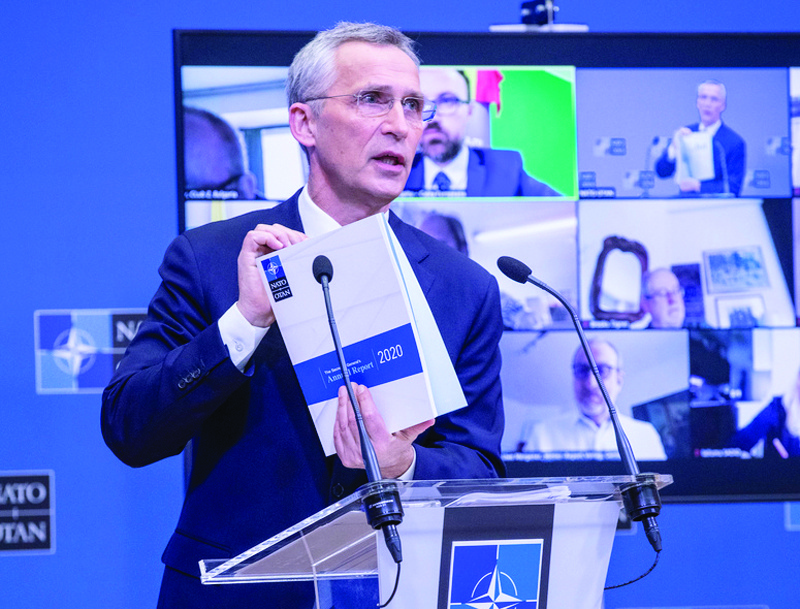 NATO Secretary General Jens Stoltenberg
NATO Secretary General Jens StoltenbergBRUSSELS: NATO Secretary General Jens Stoltenberg yesterday expressed his appreciation for the Alliance's partnership in the Gulf region and praised the role of NATO-ICI center in Kuwait which was established in 2017. "We very much appreciate and value the partnership that we have in the Gulf region as part of the ICI (Istanbul Cooperation Initiative) framework that we have," he told an online press conference while presenting his Annual Report for 2020.
"We of course also welcome the regional training center we have in Kuwait. I had the honor of visiting the center several times. I welcome the fact that in that center we bring together NATO allies and partners in the region and that we strengthen our partnership and we work together on wide range of concrete tasks and issues," he said.
"We are open to further step up our cooperation with partners in the Gulf region and therefore we continue to consult and work with different partners in that region because the Gulf region and the Mediterranean region both regions are important for NATO," he stressed. The ICI initiative includes Kuwait, Bahrain, Qatar and the UAE.
NATO's Istanbul Cooperation Initiative, launched at the Alliance's Summit in the Turkish city in June 2004, aims to contribute to long-term regional security by offering countries of the Gulf region practical bilateral security cooperation with NATO. Commenting on the current NATO mission in Iraq, he said that "everything we do in Iraq will be based on the request by the Iraqi government fully respecting the territorial integrity and sovereignty of Iraq."
Stoltenberg stressed that the NATO mission in Iraq is a training and advice mission and not a combat mission. The 142-page report covers NATO's work and achievements throughout the year of 2020. The report said that the Kuwait based NATO-Istanbul Cooperation Initiative Regional Centre delivered its first course online in September 2020. Since its inauguration in 2017, the center has hosted more than 1,000 participants from the Gulf, as well as more than 200 experts from NATO countries. - KUNA










